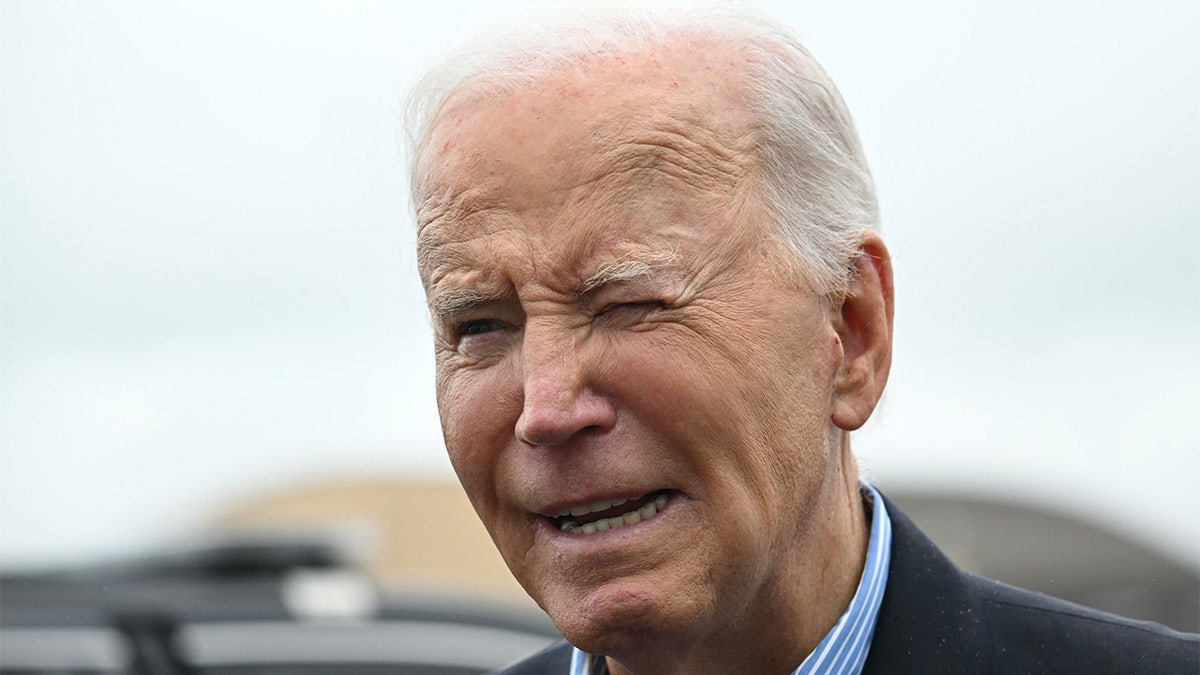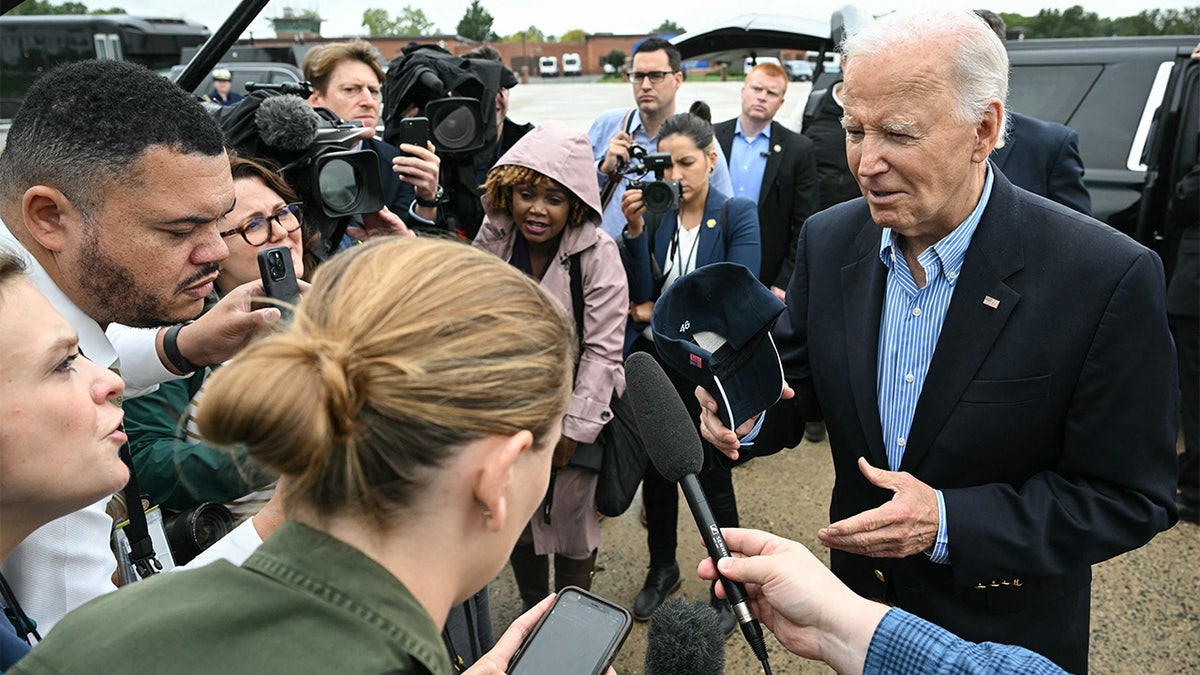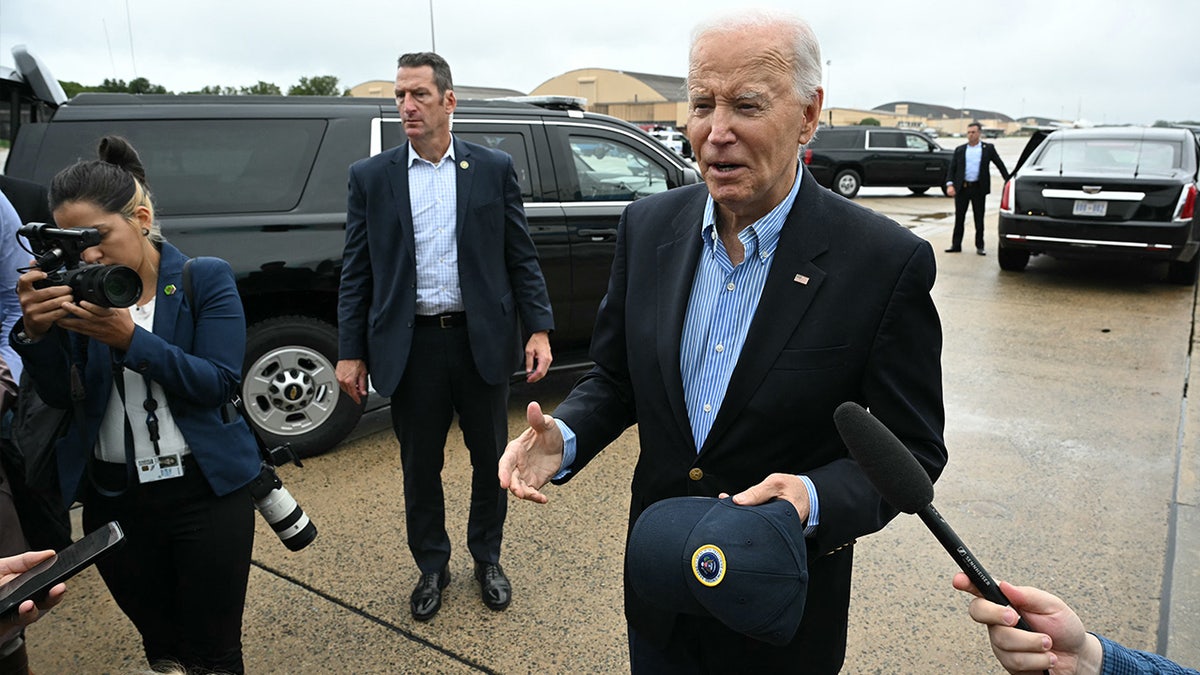Biden says he would not back Israeli strike on Iran's nuclear sites
President Biden said Wednesday that he would not support an attack by Israel on Iranian nuclear sites in retaliation for Tuesday’s missile attack. (Associated Press)
President Biden said Wednesday that he would not support an attack by Israel on Iranian nuclear sites in retaliation for Iran's firing of 181 missiles at Israel amid fears that a lethal regional war is around the corner.
On Wednesday, a day after the massive attack and after Israeli Prime Minister Benjamin Netanyahu vowed that Iran would pay for the attack, Biden briefly spoke with reporters before boarding Air Force One.
He said all the leaders on a recent call – France, Canada, Japan, Britain, Italy and Germany – agreed that Israel had the right to "proportionally" respond to Iran’s military strike.
"We'll be discussing with the Israelis what they're going to do, but all seven of us [G7 nations] agree that they have a right to respond, but they should respond proportionally," he said.
ISRAEL URGES UN TO CONDEMN IRAN AFTER LATEST ATTACKS

President Biden speaks to reporters before boarding Air Force One at Joint Base Andrews in Maryland on Oct. 2, 2024. (MANDEL NGAN/AFP via Getty Images)
But when asked whether he would back Israel striking Iranian nuclear sites as it has long threatened, Biden told reporters, "The answer is no."
ISRAEL STRIKES HEZBOLLAH TARGETS IN LEBANON
Biden said more sanctions would be imposed on Iran and that he would speak with Netanyahu soon.
"Obviously, Iran is way off course," he said.

President Biden speaks to reporters before boarding Air Force One at Joint Base Andrews in Maryland on Oct. 2, 2024. (MANDEL NGAN/AFP via Getty Images)
Iran's missile attack escalated tensions in the region, where the Biden administration has for months led negotiations on a cease-fire in the nearly year-old Israel-Hamas war.
ISRAEL'S ‘SWORN ENEMY’ HEZBOLLAH TELLS IRAN IT WOULD FIGHT ALONE IF CONFLICT ESCALATES
The recent assault on Israel follows the Biden administration souring on the prospects of an end to the war between Israel and Hamas.
"We aren’t any closer to that now than we were even a week ago," National Security Council spokesperson John Kirby previously told reporters. He called the prospects of a completed deal "daunting."
"No deal is imminent," one U.S. official told the Wall Street Journal. "I’m not sure it ever gets done."

Biden is traveling to South Carolina and North Carolina to survey storm damage after Hurricane Helene. (MANDEL NGAN/AFP via Getty Images)
During Tuesday's vice presidential debate with Republican Ohio Sen. JD Vance, Minnesota Gov. Tim Walz said Democrat nominee Vice President Harris' "steady leadership" in the region is necessary.
"What we've seen out of Vice President Harris is we've seen steady leadership. We've seen a calmness that is able to be able to draw on the coalitions, to bring them together, understanding that our allies matter. When our allies see Donald Trump turn towards Vladimir Putin, turn towards North Korea, when we start to see that type of fickleness around holding the coalitions together, we will stay committed," he said.
"And as the vice president said today, we will protect our forces and our allied forces, and there will be consequences," he said.

JD Vance and Tim Walz took part in the vice presidential debate on Tuesday night in New York City. (Reuters)
Vance voiced support for GOP nominee former President Trump's "peace through strength" policy toward Israel.
"Donald Trump recognized that for people to fear the United States, you need peace through strength," Vance said. "They needed to recognize that if they got out of line, the United States' global leadership would put stability and peace back in the world."
CLICK HERE TO GET THE FOX NEWS APP
Vance said it is "up to Israel" how they choose to respond.
"Now, you asked about a preemptive strike, Margaret, and I want to answer the question," he said during the debate. "Look, it is up to Israel what they think they need to do to keep their country safe," he said. "And we should support our allies wherever they are when they're fighting the bad guys. I think that's the right approach to take with the Israel question."
Fox News Digital has reached out to the State Department and the White House for comment.














































